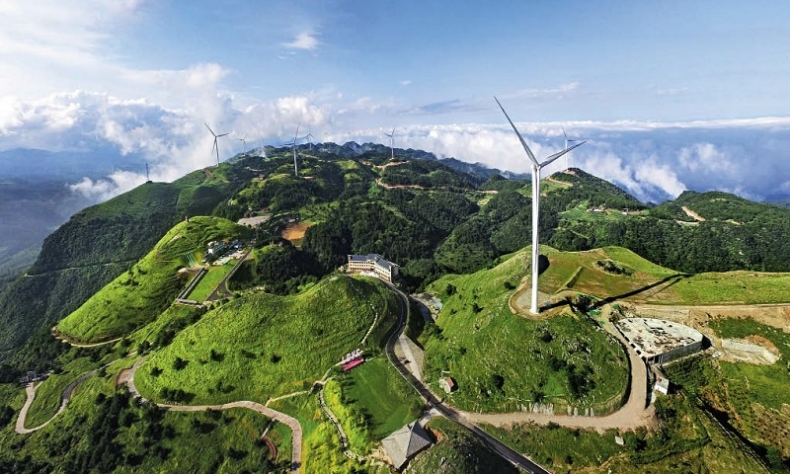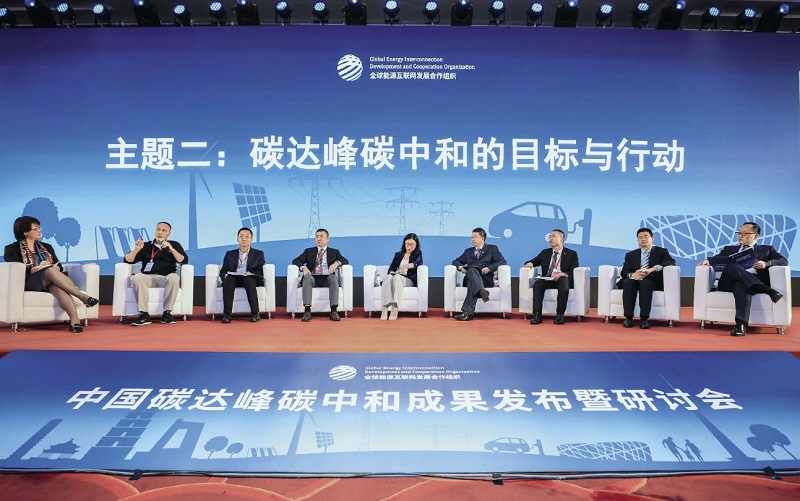Ecological Civilization, Socialism, and Scientific Development

China is making important contributions towards a new international order which, to my mind, represents a historic advance for the human society, while being poised to deepen and lead social, ecological, and economic transformations on the basis of scientific development.
This July marks the 100th anniversary of the founding of the Communist Party of China (CPC), whose first national congress back in 1921 heralded the social revolution that would liberate the Chinese people from feudal, imperialist, and bureaucrat capitalism oppression. Under the leadership of the CPC, the People’s Republic of China was founded in 1949. Seventy or more years later, with the development of socialism with Chinese characteristics, China has reached a medium-high ranking on the human development index, and greatly improved the living conditions of its 1.4 billion people, among other achievements.
The CPC, aware of its successes and also having corrected its mistakes, has placed the interests of the people as the priority of its policy making. Based on the comprehensive analysis of the changing international situations and domestic conditions, the CPC has been dedicated to advancing domestic development while furthering its reform and opening-up, seeking common prosperity, and maintaining world peace in its international cooperation. As a result, under the leadership of the CPC, the country has secured a range of incredible achievements in fields across the board and contributed to global progress.
The country’s timely and effective control of the COVID-19 epidemic within its borders and its victory in eradicating extreme poverty has once more sparked the heated discussion about the China mode. And the carbon neutrality commitment made by China in last September demonstrated that China is a responsible major country.
Grim reality of the COVID-19 crisis
More than a year after the novel coronavirus broke out in Wuhan, the numbers of new cases and deaths from the virus continue to increase the world over.
Amid the enormity of this global disaster, through their effective mobilization of physicians and multiple teams of specialists, as well as groups of volunteers to keep watch over Chinese neighborhoods, factories, and villages, the government of China, under the leadership of the CPC, has quickly put the pandemic under control within the country. At the same time, in overcoming differences and seeking common solutions to universal difficulties, China has made consistently clear its willingness to cooperate with other countries. The abysmal impotency of the neoliberalism that dominates Europe, Brazil, and the United States, meanwhile, has been laid bare. Having decimated the capacity of these countries’ health systems over decades of privatization, neoliberalism policies have displayed a total absence of the vital capacity for social organization that such a health crisis demands.
It is apposite at this point to emphasize the importance of international cooperation and multilateralism in order to solve the many problems that now challenge mankind, including the COVID-19 pandemic.

Poverty, climate change, and sustainable development
The crucial issues facing China and mankind as a whole include eradication of poverty and inequality, the halting of climate change, and promotion of sustainable development. Chinese society has achieved a great victory in lifting more than 770 million people out of poverty over the past four decades or more, so placing itself at the forefront of global poverty eradication.
There is extensive scientific evidence to show that climate change has been the result of human activities since the Industrial Revolution, which began around 1750. More precisely, it is inextricably linked to the ruthless expansion of the global capitalist mode of production based on the use of fossil fuels. Chinese society is also vulnerable to the effects of climate change as Chinese scientists have found clear evidence of the country’s altered rain pattern. More evidence has been found in the global retreat of glaciers, rising sea levels, and greater frequency of extreme meteorological phenomena.
Most pollutant emissions were generated in the industrialized capitalist countries that continue to produce a substantial proportion of greenhouse gas emissions. The process of building socialism with Chinese characteristics has also engendered certain environmental contradictions. However, in the course of successive five-year plans, the CPC has adopted new measures specifically to reduce the country’s carbon footprint through decisive investment in renewable energy. The Party’s ultimate aim is to reduce the country’s dependence on coal and control pollution generally. China continues to be proactive in the framework of the Paris Agreement. In light of the growing urgency of the situation, China has committed to achieving carbon neutrality by 2060.
Working in parallel with the international development of ecological science and new knowledge to which China has contributed, especially since the second half of the 20th century, in regard to the diminishing ozone layer, biodiversity crisis, and climate change generally, the CPC put forward the conception of building an ecological civilization at its 17th National Congress held in 2007, which was later further enriched and explicitly expounded in the following national congresses of the CPC.
Ecological civilization is defined as a fundamental, long-term strategic program. With its focus on the quality of life and future of humanity as a whole, the proposal is regarded as a priority policy for Chinese society in its entirety, as stipulated in the preamble to the country’s Constitution.
During my stay in China, I had both the honor and good fortune to carry out several ecological science investigations in Anji County of Zhejiang Province, Yunnan Province, and Harbin in Heilongjiang Province. These enabled me to verify China’s reinforced process of forest recovery and biodiversity conservation over the last 20 years.
The proposal regarding the construction of an ecological civilization has, since 2012, been taken as a strategic policy of the county. It is hence dynamically integrated with and carries the same degree of importance as the economic, political, cultural, and social construction of the country. On the basis of scientific development, the proposal is closely linked to promoting energy saving and nature conservation. It is also aimed at the transformation of economic structure, mode of production, and way of life.
Towards a community with a shared future for mankind
China is currently a leader in global forest restoration, investing heavily in renewable energies, and making the acquisition of solar panels accessible throughout the world. The country has moreover set itself the goal of carbon neutrality by 2060, and continues to raise proposals regarding the UN 2030 Agenda for Sustainable Development Goals and to support the United Nations.
The CPC is mindful of the needs of the Chinese people in building an ecological civilization in China and has been dedicated to advancing the cause. Meanwhile, the CPC has also pursued the common good for the world and thus advanced the joint building of a community with a shared future for mankind together with the rest of the world. China is making important contributions towards a new international order which, to my mind, represents a historic advance for the human society, while being poised to deepen and lead social, ecological, and economic transformations on the basis of scientific development.
The common challenges facing all of humanity demand the world to act simultaneously, decisively, jointly, and in coordination to eradicate poverty, neutralize the unilateral and indiscriminate use of military force, prevent economic aggression/coercion, and provide effective solutions that preserve the environmental quality and biodiversity necessary for life on the planet. All of these tasks must be accomplished in tandem with reinforcing and maintaining the communist horizon that motivates our progressive steps towards an international society based on solidarity, cooperation, and the abolition of exploitation.
Lucas Gutiérrez Rodríguez is a doctor in ecology of international repute. He completed his doctoral thesis at the Autonomous University of Madrid in collaboration with the Research Institute of Subtropical Forestry (Zhejiang) under Chinese Academy of Forestry.
 Facebook
Facebook
 Twitter
Twitter
 Linkedin
Linkedin
 Google +
Google +










